ADVERTISEMENT
Photos
Michel-Ange Gédéon, new Central Director of the Administrative Police
Here is a picture of the new Central Director of the Administrative Policer, Michel-Ange Gédéon who was installed on Monday, Feb. 29, 2016.
On February 29, 2016, Michel-Ange Gédéon, the Divisional Commissioner and former head of the West Departmental Office (DDO) has been installed as the Inspector General of the National Police of Haiti (PNH). He will hold his office at the Central Directorate of Administrative Police (DCPA), one of the most important bodies of the National Police of Haiti (PNH), by replacing the former Inspector General, Destorel Germain, who had held the post for the past ten years. The installation ceremony of the new Inspector General Michel-Ange Gédéon was attended by many institutional executives. The new Inspector General, in a note of thanks, thanked the Director General of the PNH to select him for the honorable role and expressed his commitment to fulfill his entrusted mission.
Statement from Pastor, Senator Andris Riché
A quite strong statement from a seating Haitian Senaator and a pastor. Statement from Pasteur, Senator Andris Riché
Senator Andris Riché on 2/29/16: "President Jocelerme Privert et Premier Ministre Fritz Jean sont deux Lavalassies qui ont deja perpétré mile et un coups dans la politique du pays et symbolisent le retour des rats ravageurs, canaille, delinquents en costumes".
Recently, on February 29, 2016, following the announcement of the name of economist Fritz Jean as the new Prime Minister, Senator Andris Riche went back to his atrocious vocabulary before the press to describe how the Lavalas movement was started by the former President Jean Bertrand Aristide. He believes President Jocelerme Privert and Prime Minister Fritz Jean, both are followers of Aristide and members of his Lavalas party which has damaged the Haitian politic severely. He did not hesitate to refer the Provisional President Privert and Prime Minister Nominee Fritz Jean as rats, rabble, delinquents who only dress like humans. Senator Andris Riche from the Alternative for Progress & Democracy party was the Vice President of the Senate following the departure of former President Simon Dieuseul Desras; he was elected as the Senate President in January 2015. This Senator from Grand Anse is a Pastor by occupation. On December 16, 2006, he was kidnapped by gunmen while driving near a dangerous slum, but he foiled the kidnapping attempt by escaping after several hours in captivity.
Prime Minister Nominee Fritz Jean hunting for votes
Here is a picture of Prime Minister Nominee Fritz.
Prime Minister Nominee Fritz Jean now has to legalize his appointment by securing a vote of confidence in the Parliament by securing 16 votes in the Senate and 60 votes in the Lower House. The task looks difficult, because there is no political group in both houses with absolute majority that can make him through. Currently, the Senate is composed of two groups. The majority opposition (G15) on his side has 15 Senators, including the President of the Upper House of whom the President may not vote. Thus, he has to convince two Senators from the minority group (G9) to cast vote in his favor. The Lower House is again composed of three major political groups such as, 48 Deputies from Parliamentary Alliance for Haiti" (APH) or G48; 33 Deputies from the "Parliamentary Group at the Listening of the People"; and 11 independent deputies from the" Group of independent deputies" (GPI). If Fritz wants to get 60 votes, he has to convince some of his hardcore opponents from G 48.
Jean Max Bellerive named Chief of Staff to President Jocelerme Privert
Here is a picture of Jean Max Bellerive who was named Chief of Staff to President Jocelerme Privert.
On February 29, 2016, the Provisional President Jocelerme Privert appointed former Haitian Prime Jean-Max Bellerive (under the presidency of Rene Préval), for the role of his Chief of Staff. His other political advisors appointed by him are: Jean-Marie Chérestal (former Prime Minister under Jean-Bertrand Aristide) as a private advisor; Raymond Jeanty (one of the right arms of former President Préval) as director of the National Palace; Daly Valet, former campaign manager of Moïse Jean-Charles, in charge of the national dialogue file; Joanas Gué, Harry Adam, former director of the UCLBP (under Martelly administration), Senator Kelly C. Bastien (Senate candidate - Vérité), former deputy Jean David Génesté are also part of the President Privert advisers. Bellerive (born 1958), the son of a prominent doctor was born in Port-au-Prince. He completed his studies on Political Science and International Relations from Switzerland, France, and Belgium. On 30 October 2009, he was nominated by Haitian President René Préval to replace former Prime Minister Michèle Pierre-Louis. As the 14th Prime Minister of Haiti, he held the Prime Minister's office between 11 November 2009 and 18 October 2011. On 14 May 2011, he resigned as Prime Minister to allow Michel Martelly, the country's new President, to choose his own Prime Minister and Martelly selected Daniel Gérard Rouzier to succeed Bellerive.
Police officer Gérald François assassinated at Portail Léogane
Here is a picture of Police officer Gérald François who was assassinated in Portail Léogane on March, 2, 2016.
On Wednesday, March 2, 2016, Gérald François (38) from the traffic department of the Haitian National Police was cowardly assassinated in Portail Léogane. In the early morning of March 2nd, his body was found at the boulevard Harry Truman (Bicentennial) near the Theatre National in Port-au-Prince, with one bullet injury on the head. Gerald Francois (with 18th Promotion) was shot by unidentified individuals. According to the judge Fritz Belliard who visited the spot, the police officer had received at least five bullet shots. The news has been confirmed by Garry Desrosiers, the Principal Inspector & Deputy Spokesperson of the National Police of Haiti (PNH). On the same day, another police officer was injured in the city by gunfire and was rushed to hospital. Since the beginning of 2016, four police personnel have been targets of gun attacks, there is a rise in the numbers of robbery around the commercial banks and cases of kidnapping in the metropolitan area of Port-au-Prince. In Haiti, historically, insecurity always follows political instability.
Jean-Marie Chérestal
Here are some pictures of Mr. Jean-Marie Chérestal.
Jean-Marie Chérestal (18 June 1947) was a Prime Minister (2 March 2001 - 21 January 2002) under Jean-Bertrand Aristide's presidency. He submitted his resignation following accusations of corruption and questionable management from his own Lavalas party. He is an agronomist, former Minister of Agriculture, Executive Board Member of Truth. On Monday, February 29, 2016, Provisional President Privert strengthened his executive team by appointing Jean-Marie Chérestal as his private advisor. Privert has also appointed another former Prime Minister Jean-Max Bellerive (under Préval) as his Chief of Staff. Other political advisors appointed by him are: Raymond Jeanty (one of the right arms of former President Préval) as director of the National Palace; Daly Valet, former campaign manager of Moïse Jean-Charles, in charge of the national dialogue file; Joanas Gué, Harry Adam, former director of the UCLBP (under Martelly administration), Senator Kelly C. Bastien (Senate candidate - Vérité), former deputy Jean David Génesté are also part of the President Privert advisers.
overcrowding at Haitian prisons
Here is a picture showing the status overcrowding at Haitian prisons.
As per MINUSTAH and the Institute for Criminal Policy Research statistics of December 2015, considering an estimated Haitian population of 10.78 million, prison population rate per 100,000 in the country is 102. Haiti has an official capacity of 2,431 inmates in its 17 prison systems; however, the number of 11,046 detainees translates the occupancy rate to 454.4%. The country boasts the worst overcrowding in the world. The prisoners rarely get any recreational time. They sleep, eat and live in about the space of one-quarter of a twin bed (0.4 square meter space) whereas the international recommended standard is 5.4 square meters of space. Some of the major reasons of overcrowding might be due to the snail-paced legal system, prolonged pre-trial detention (share of pre-trial detainees is 70.9% of the prison population), lack of qualified health personnel and insufficient budgetary allocations. Large numbers of the prison inmates spend more time in prison than the jail term they receive after trial.
Entire community swallowed as Lake Azuéi rose uncontrollably
Here is a picture of some homes under water as the community was swallowed by Lake Azuéi.
Lake Azuéi, the largest lake in Haiti, lies about 18 miles east of the Haitian capital Port-au-Prince. Lake Azuéi (Lac Azuéi) is also known as Étang Saumâtre (mild saline pond). It is the second largest lake in Hispaniola, after Lake Enriquillo. The scientists are stunned by the constant rise of these two lakes, Lake Azuéi in Haiti and Lake Enriquillo in the Dominican Republic. These lakes are swallowing up lands that are home to 400,000 people. Lake Azuéi rose so much between 2004 and 2009 that it consumed dozens of square miles. A 2008 estimate reveals that Lake Azuéi had flooded around 6,000 acres (about 15,000 hectares) of agricultural land in Haiti, and that is a big loss to a fragile economy. In the last ten years, Lake Enriquillo rose over incredible 37 feet, doubling in size, destroying the surrounding fragile ecosystem and swallowing at least 40,000 acres of farmland. Experts from all over the world have traveled to study these two lakes, but they are clueless; could not draw any conclusion on the lakes' rise. Some want to attribute it to the climate changes, or pollution, however, this proposition is counterintuitive, because as per the established scientific theories, ocean level rises with climate changes, but lakes always tend to shrink. Some of the common causes cited by the experts which could be responsible for the water level rise include deforestation, saturation of the soil or buildup of waste and sediment in the channels that are blocking the water outlets.
Some of the scientists feel that the 'Yaque Del Sur River' could be held responsible for the rise. More dams should have been built to control the flooding of agricultural canals, responsible for channeling water to the lakes. The Haitian government has no plan or rehabilitation package for the flood victims. Only a Florida-based Christian charity called 'Love a Child' provided few homes to the families who lost their houses to the Lake Azuéi whereas the Dominican government has built an entire town for the susceptible residents.
six long lost species of frogs found in Haiti
six long lost species of frogs found in Haiti.
In January 2011, scientists exploring the pristine Haitian forests found an abundance of frogs, including six species lost for nearly two decades. On the one-year anniversary of Haiti's earthquake nightmare on January 11, 2011, the scientists from the Conservation International (CI) and the Amphibian Specialist Group (ASG) of the International Union for Conservation of Nature (IUCN) found six globally unique frog species in the tropical jungles of Haiti. The researchers were working in Haiti, especially in search of long lost La Selle Grass frog (E. glanduliferoides) which had not been seen since 1991. In 2011, Conservation International was working in 18 countries with the goal of locating species that have not been seen in a decade or more and which are feared to be extinct. The six species that the scientists have found are: (i) La Hotte Glanded Frog; (ii) Hispaniola Crowned Frog; (iii) Haiti Macaya Burrowing Frog; (iv) Haiti Macaya Breast Spot Frog; (v) Haiti Ventriloqual Frog; and (vi) Haiti Mozart's Frog.
La Hotte Glanded Frog is a critically endangered species that sees the world through unusual, sapphire colored eyes. Hispaniola Crowned Frog was named after a subtle row of protuberances resembling a crown on the back of its head. The males of the Macaya Burrowing Frog species call from underground chambers. This was the first record of the species from this area. The females of this species lay eggs underground. Skipping the tadpole stage, they hatch directly into 'froglets'. A fully grown Macaya Breast-spot Frog, about the size of a grape, is one of the smallest frogs in the world. Hispaniola Ventriloquial Frog projects its bird chirping voice like a ventriloquist. 'Mozart's Frogs' are whistling frogs that make whistle-like call resembling musical notes. The species is named after composer Wolfgang Amadeus Mozart.
The Haitian cloud forest is home to many critically endangered amphibian species. However, due to the massive deforestation, many Haitian species of plants and animals might become extinct within the next few decades.
Decree appointing Fritz Alphonse Jean as Prime Minister
Here is a copy of the decree appointing economist Fritz Alphonse Jean as Prime Minister of Haiti.
On February 26, 2016, Jocelerme Privert, the interim President of Haiti has appointed well known Haitian economist Fritz Alphonse Jean (59) as the new Prime Minister of the provisional government. When Privert announced the name of Fritz- Jean as the new Prime Minister, former Prime Minister Evans Paul could not hide his dissatisfaction. He has openly stated that the accord signed between Jocelerme Privert and former President Michel Martelly has entrusted Privert the responsibility to complete the remaining election process, the final run off between Jovenel Moise and Jude Celestin within the scheduled date on April 24, 2016 and install a new President on May 14, 2016. Since Privert was the principal architect of the agreement with his erstwhile capacity as the Senate Chief, he must strictly respect that agreement. The announcement of Fritz-Alphonse Jean as the new Prime Minister by the new provisional president is contempt of the Haitian constitution. Such announcement was made without any confidence vote, without the approval of the presidents of the both houses of the Parliament, and without the confirmation of the eligibility of Fritz-Alphonse Jean as the Prime Minister. Professor Fritz Alphonse Jean is a Cap-Haitien born U.S. educated economist, politician and writer who had served as the governor of the Banque de la République d'Haïti between 1996 and 2001. He studied economics and mathematics in the United States, in New York. Since 2012, he had served as the President of the Chamber of Commerce, Industry and Professions of the North East Department. In his acceptance speech, Jean has acknowledged that his task is huge. It is something more than organizing a fair election; he has to re-establish the macro- economic stability in the country. All Haitians must set aside their differences for the sake of the country to take it out of the present social and economic difficulties.
After having multiple exchanges with various sections of the society for nearly two weeks, and having consultations with the President of the Chamber of Deputies, Cholzer Chancy, and Deputy Senate President, Ronald Larèche, the Provisional President Privert has chosen him as the new Prime Minister. Privet is of opinion that the appointment of Jean in no way contravenes the Haitian constitution. His appointment was made in accordance with the constitution in force and respecting the agreement of 6 February, 2016. The parliament, with supports from the both houses of the government, would confirm the eligibility of the consensus prime minister. Following the vote of confidence, the new Prime Minister will be installed to his functions.


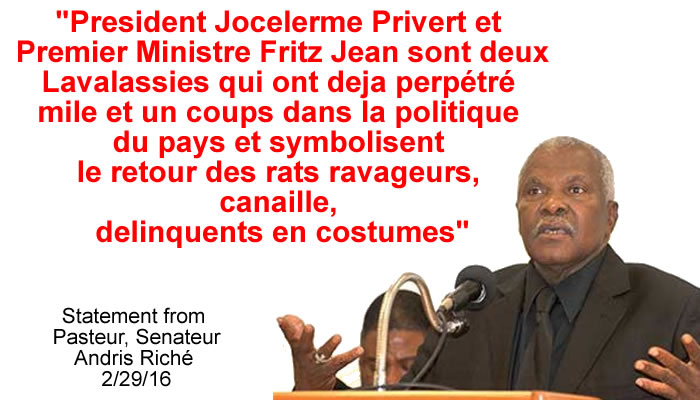
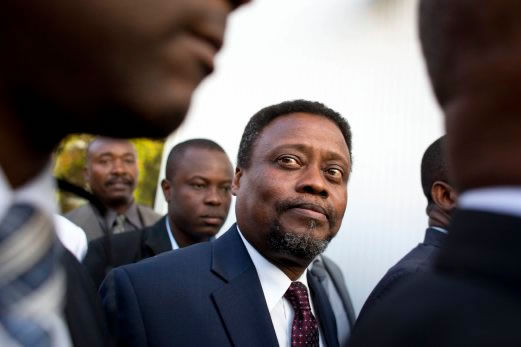
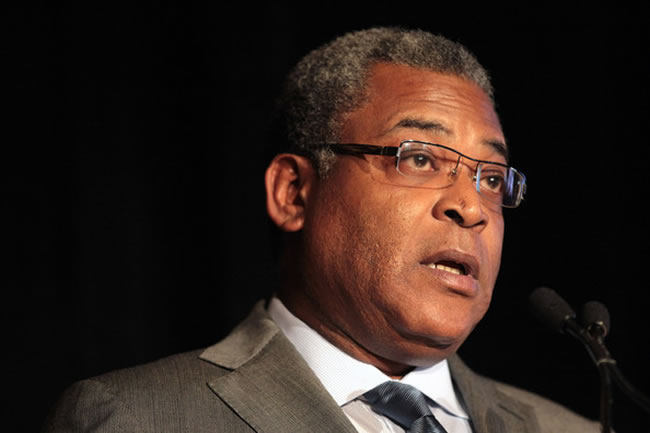

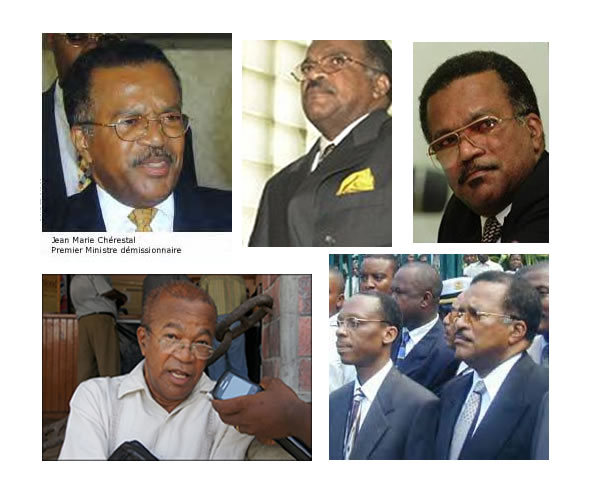
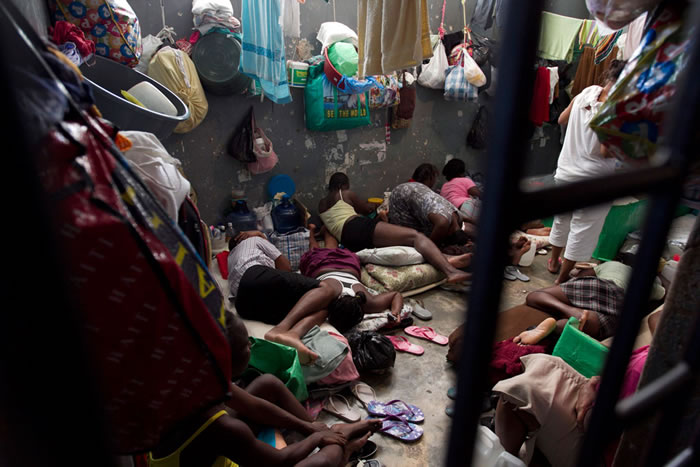
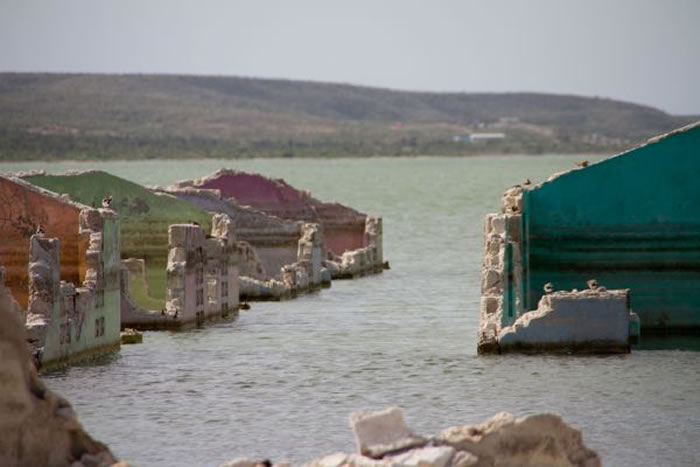
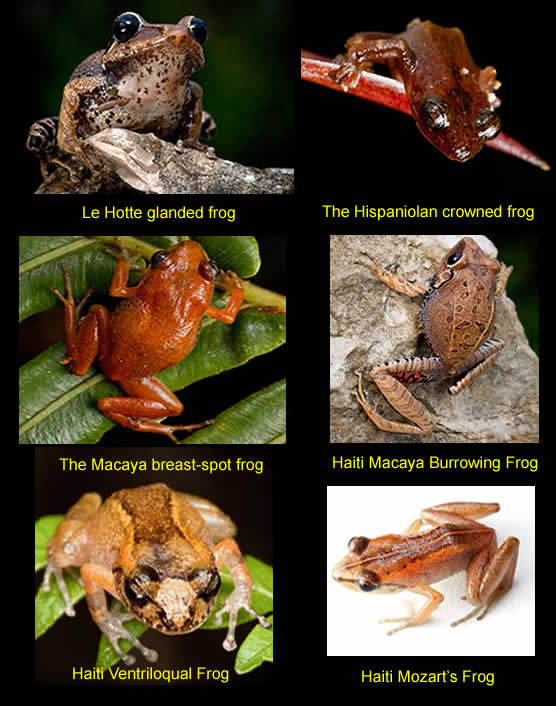
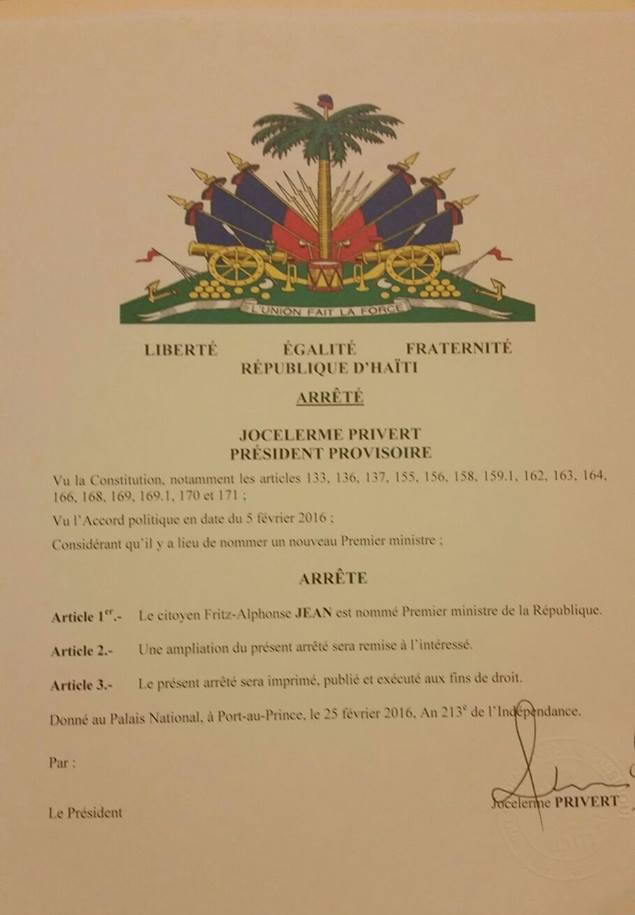
 Texaco Gas Station In Haiti
Texaco Gas Station In Haiti  Ernst 'ZeNono' Jean-Baptiste wants to replace Sepp Blatter as...
Ernst 'ZeNono' Jean-Baptiste wants to replace Sepp Blatter as... 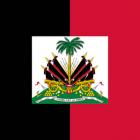 Haitian Flag Under Francois Duvalier changed in 1964 to black...
Haitian Flag Under Francois Duvalier changed in 1964 to black...  Haiti Street Food, manje kwit or Chin Janbe, for $1 or less
Haiti Street Food, manje kwit or Chin Janbe, for $1 or less  Delimart Plaza, Delmas 32, Port-au-Prince, Haiti being looted
Delimart Plaza, Delmas 32, Port-au-Prince, Haiti being looted  Port-au-Prince on fire over gas prices hike
Port-au-Prince on fire over gas prices hike  Rafael L. Trujillo welcoming Paul Magloire in Santo Domingo
Rafael L. Trujillo welcoming Paul Magloire in Santo Domingo 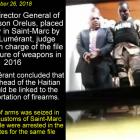 Former PNH Chief, Godson Orelus, arrested for illegal arm...
Former PNH Chief, Godson Orelus, arrested for illegal arm... 



